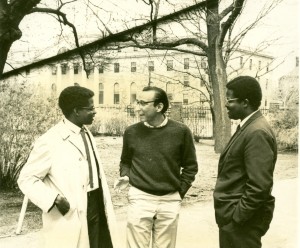
Meritocracy is an elite group whose progress is earned with their intellectual prowess, rather than wealth or class privilege. The term also describes the practise of this form of government. Power is vested in meritocrats for having distinguished themselves by success in standardized examinations, as is the case for civil service exams, for instance, or by standing out through a demonstration of achievement in a chosen field.
In the southwest Nigeria, the rule by merit did not get a foothold easily. The colonial indirect rule system, which favored existing traditional political mechanism, gave only a little room for the mission-educated elite. Opportunities open to this class of ‘new Africans’ were increasingly restricted to careers in the church, or at best, principals and teacher of secondary schools. At the height of this situation, institutions such as Egbe Agba O’tan (Society of Worthy Elders) were established by young educated elite who had called themselves elders in the belief that their education made up for whatever they lacked in years. This egbe, which began as a pan-Yoruba association, finally culminated in the first modern political association in Ibadan, becoming a breeding ground for politicians. In Abeokuta, the ancient village arm of government, called Ogboni, was reintroduced in 1914 as the Reformed Ogboni Fraternity. This secretive group served as an effective channel through which the mission-educated elite exerted considerable influence on the politics of their domain without the prying eyes of the European missionaries.
Steadily, a class of educated people began to gain the attention and even the respect of the traditional aristocracy. Herbert Macaulay, through the services he provided for the Chief, Oluwa of Lagos, during the Apapa land case of 1920 became known and set to assert his own position of power. By 1938, this new trend in Africa had been celebrated by one who achieved enough wealth and clout to even challenge the king of his domain. T.A. Odutola opined Africans of his day were faced with greater and more intricate problems than those of the preceding two decades. “Changing is the old order,’ he wrote, ‘Africa therefore needs people who will handle her problems practically. Whether such persons are of humble or high birth does not matter. What matters is that they should be men of action, men with broad mind, men able to call a spade a spade. Such people and such only are worthy to be leaders of the new Africa.”





















